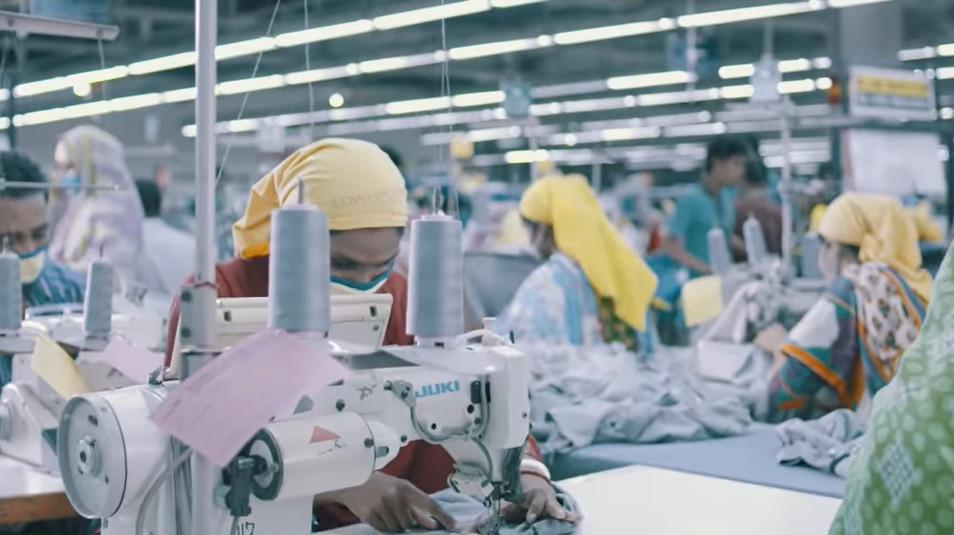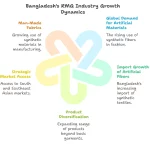 Garment factories in SME category to get cash incentive
Garment factories in SME category to get cash incentive
The Daily Star of Bangladesh reports that the government has extended policy support to garment exporting factories falling under the small and medium enterprise (SME) category to improve their competitiveness during this time of the coronavirus pandemic.
The Bangladesh Bank (BB) has issued a notice stating that such garment factories focusing on knitwear, woven items, sweaters, terry towels and home textiles would get a cash incentive.
Factories whose exports amount to up to $5 million are considered as SMEs in the garment sector. So, they will enjoy the benefit. A 4 per cent incentive would be provided on 30 per cent value addition even if the garment items were made out of imported fabrics and yarn, the notice said. The SMEs will even be able to avail the benefit on export receipts of last fiscal year, it added.
The big units have been enjoying a 4 per cent cash incentive on export receipts on use of local yarn and fabrics in production and manufacturing of garment export. The government has been providing it since 2009 when the local factories were suffering from the fallout of the global financial recession of 2007 and 2008. Now the government has decided to give this benefit to the SMEs to help them grow and create new entrepreneurs in the country.
 (L-R): Mohammed Abdus Salam, president of BGMEA; Mohammad Hatem, vice-president of BKMEA; Arshad Jamal Dipu, vice-president of BGMEA; A Matin Chowdhury, former president of BTMA
(L-R): Mohammed Abdus Salam, president of BGMEA; Mohammad Hatem, vice-president of BKMEA; Arshad Jamal Dipu, vice-president of BGMEA; A Matin Chowdhury, former president of BTMA
“Our small industries will be benefited from this move,” said Mohammed Abdus Salam, acting president of the Bangladesh Garment Manufacturers and Exporters Association (BGMEA).
“Currently, the small and medium units cannot compete with the bigger ones. So, the move will improve the competitiveness of the SMEs and one day they will turn into big exporters of the country, he said, adding that the new move would also increase employment. The export volume and value will also increase,” he added.
Mohammad Hatem, vice-president of the Bangladesh Knitwear Manufacturers and Exporters Association (BKMEA), echoed the same. “It was our long-time demand from the government as more than 50 per cent or 1,500 of factories are SMEs,” he said.
But Arshad Jamal Dipu, vice-president of the BGMEA, said the SMEs might not be greatly benefited from the new move by the government. “We proposed that the government expand the definition of SMEs this year. We suggested the government consider units as SMEs if their exports were $15 million but it was finally left at $5 million,” he said.
A Matin Chowdhury, former president of the Bangladesh Textile Mills Association (BTMA), said the local primary textile sector would be affected a little by the move but it was also true that the government needs to assist the local SMEs so that they could expand and grow. “This is a special kind of support to the SMEs from the government,” said Matin Chowdhury.
 Bangladesh has the target of achieving $50bn exports of RMG to the top brands across the world.
Bangladesh has the target of achieving $50bn exports of RMG to the top brands across the world.
Currently, the local spinners can supply nearly 90 per cent of raw materials to the knitwear sector and 40 per cent of raw materials to exporters of woven items. The government has already disbursed Tk 10,500 crore to the garment sector for paying wages and allowances to workers since April this year because of the coronavirus pandemic.
Moreover, the government has allocated Tk 33,000 crore for large industrial units, Tk 20,000 crore for the cottage, micro and small and medium industries and other policy support to face the fallout of the pandemic.





